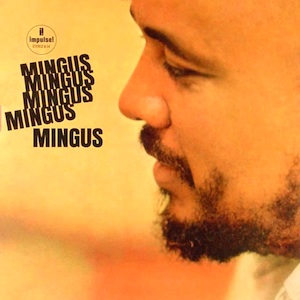
Mingus Mingus Mingus Mingus Mingus is a studio album by the American jazz composer and bassist Charles Mingus which was released on January 9, 1964.
"Fables of Faubus" is a composition written by jazz double bassist and composer Charles Mingus. One of Mingus's most explicitly political works, the song was written as a direct protest against Arkansas governor Orval Faubus, who in 1957 sent out the National Guard to prevent the racial integration of Little Rock Central High School by nine African American teenagers, in what became known as the Little Rock Crisis.

George Rufus Adams was an American jazz musician who played tenor saxophone, flute and bass clarinet. He is best known for his work with Charles Mingus, Gil Evans, Roy Haynes and in the quartet he co-led with pianist Don Pullen, featuring bassist Cameron Brown and drummer Dannie Richmond. He was also known for his idiosyncratic singing.
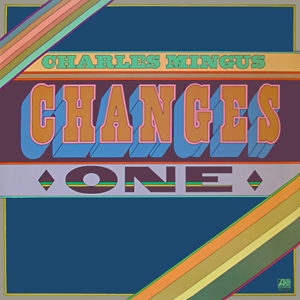
Changes One is an album by the jazz composer and bassist Charles Mingus, released in 1975.

Don Gabriel Pullen was an American jazz pianist and organist. Pullen developed a strikingly individual style throughout his career. He composed pieces ranging from blues to bebop and modern jazz. The great variety of his body of work makes it difficult to pigeonhole his musical style.

Mingus Dynasty is a jazz album by Charles Mingus, recorded in 1959 and released on Columbia Records in May 1960. It is a companion album to his 1959 record Mingus Ah Um, and was inducted in the Grammy Hall of Fame in 1999. The title alludes to Mingus's ancestry, which was partially Chinese.

Jack Arthur Walrath is an American post-bop jazz trumpeter and musical arranger known for his work with Ray Charles, Gary Peacock, Charles Mingus, and Glenn Ferris, among others.

Let My Children Hear Music is an album released by Columbia Records in 1972 of music by composer Charles Mingus, produced by Teo Macero. The music is scored for large jazz orchestra and Mingus worked with several arrangers, orchestrators and conductors, most notably Sy Johnson and Alan Raph, to realize some of his most ambitious compositions. In the original liner notes, Mingus described it as "the best album I have ever made".
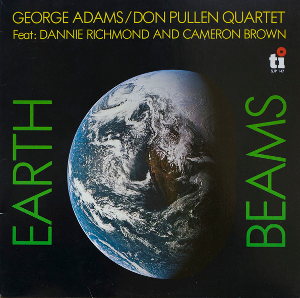
Earth Beams is a studio album recorded by noted jazz performers George Adams and Don Pullen as the George Adams/Don Pullen Quartet. Adams and Pullen had met through their work with composer and double-bassist Charles Mingus, who had died the year the Adams/Pullen Quartet began in 1979.

A Modern Jazz Symposium of Music and Poetry is an album by the jazz bassist, composer, and band leader Charles Mingus, released by Bethlehem Records in mid-1959. In spite of the title, the album does not contain any poetry. "Scenes in the City", however, includes narration performed by Mel Stewart and written by actor Lonne Elder with assistance from Langston Hughes. The composition "Duke's Choice" re-appears, in updated form, as "I X Love" on the 1963 album Mingus Mingus Mingus Mingus Mingus. "Nouroog", "Duke's Choice" and "Slippers" form the basis of the suite "Open Letter to Duke" on Mingus Ah Um.
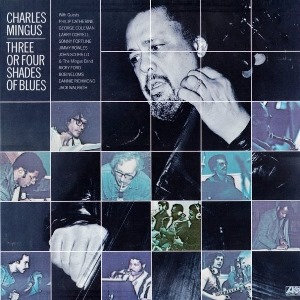
Three or Four Shades of Blues is a studio album by the American jazz bassist and bandleader Charles Mingus. It was recorded in sessions held on March 9 and 11, 1977, at New York City's Atlantic Studios, and on March 29 at the Record Plant in Los Angeles. The album features two new versions of Mingus's "standards" and three new compositions performed by large ensembles featuring saxophonists Ricky Ford, George Coleman, and Sonny Fortune, pianist Jimmy Rowles, guitarists Larry Coryell, Philip Catherine and John Scofield, bassists Ron Carter and George Mraz, trumpeter Jack Walrath, and drummer Dannie Richmond.

Cumbia & Jazz Fusion is an album by Charles Mingus, recorded for the Atlantic label in 1977. It features two extended compositions written for the film Todo Modo by Mingus and performed by large ensembles featuring Jack Walrath, Jimmy Knepper, Paul Jeffrey, Ricky Ford, Dannie Richmond, Candido, Ray Mantilla, George Adams and Danny Mixon. The CD reissue added two solo performances by Mingus on piano.

Changes Two is an album by Charles Mingus. It was recorded on 27, 28, and 30 December 1974 at Atlantic Studios in New York City—the same sessions which resulted in Mingus's album Changes One. Atlantic Records initially released the record; in 1993, it was issued on CD by Rhino Records.
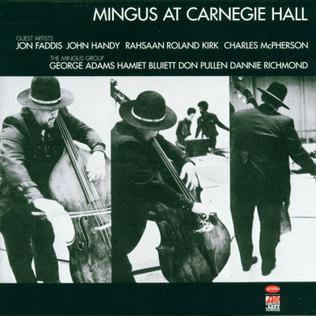
Mingus at Carnegie Hall is a live album by the jazz bassist and composer Charles Mingus, recorded at Carnegie Hall in January 1974 by Mingus with Jon Faddis, Charles McPherson, John Handy, George Adams, Rahsaan Roland Kirk, Hamiet Bluiett, Don Pullen, and Dannie Richmond. The original release did not include the first part of the concert, featuring Mingus’s working sextet without Handy, Kirk, and McPherson. An expanded “Deluxe Edition” including the entire concert, was issued in 2021.
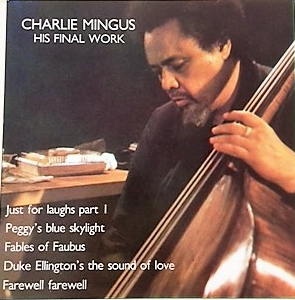
His Final Work is an album credited to Charles Mingus, released in 1977. His Final Work is a reissue of Lionel Hampton Presents Charles Mingus, released in 1977, which was also reissued as The Music of Charles Mingus and credited to Lionel Hampton. His Final Work comprises the final recording session that Mingus played an instrument on. Shortly after the completion of the recording sessions, Mingus was diagnosed with Amyotrophic lateral sclerosis which would lead to his death. The album features arrangements of Mingus's compositions by Paul Jeffrey.

More Funk is a live album by American jazz pianist Don Pullen and saxophonist George Adams recorded in 1979 for the Italian Palcoscenico label.

Don't Lose Control is a live album by American jazz pianist Don Pullen and saxophonist George Adams recorded in 1979 for the Italian Soul Note label.
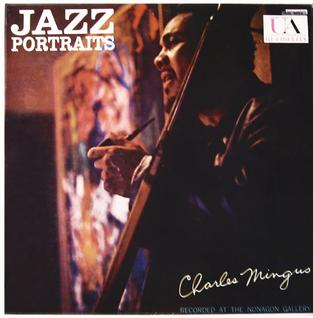
Jazz Portraits: Mingus in Wonderland is a live album by jazz bassist and composer Charles Mingus, recorded in 1959 and released on the United Artists label in September of that year. The original release was titled Jazz Portraits, and a subsequent edition was titled Wonderland, leading to the combined title of Jazz Portraits: Mingus in Wonderland.

Charles Mingus and Friends in Concert is a live album by the jazz bassist and composer Charles Mingus, recorded at the Philharmonic Hall of the Lincoln Center for the Performing Arts in 1972 and released on the Columbia label. The CD release added five previously unreleased performances from the concert, but did not include the opening track, Fats Waller's "Honeysuckle Rose", present in the LP version and on former Japanese CD editions.

Dannie Richmond Plays Charles Mingus is an album by drummer Dannie Richmond and the Last Mingus Band which was recorded in Italy in 1980 and released on the Dutch Timeless label. The album features compositions by jazz bassist Charles Mingus performed by members of his final working group with Cameron Brown substituting for the late Mingus.



















